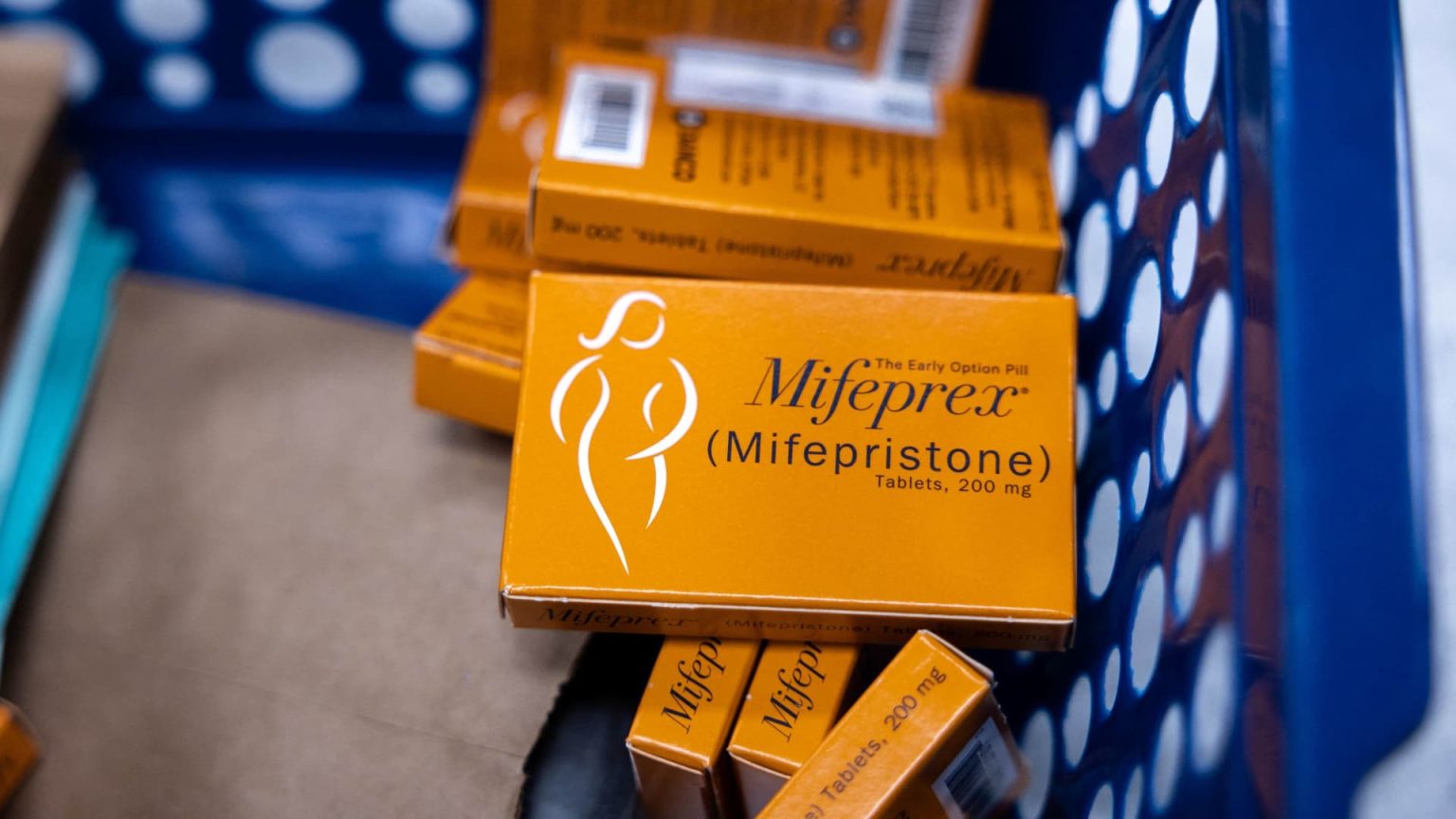A federal appeals court late on Wednesday blocked part of a ruling issued last week by a Trump-appointed judge that endangers access to the abortion pill mifepristone.
The 5th U.S. Circuit Court of Appeals granted the Justice Department’s emergency request to put on hold the part of the decision issued by U.S. District Judge Matthew Kacsmaryk that suspended the Food and Drug Administration’s original approval of mifepristone, which dates back to 2000.
But the three-judge panel said that a separate part of Kacsmaryk’s decision, which suspends changes the FDA made to the drug’s approved use in 2016, could go into effect. The panel also determined that the agency’s finding in 2021 that mifepristone can be distributed by mail would be paused as well, as Kacsmaryk ordered.
The court’s decision imperils widespread availability of the drug, as it would require patients to make in-person visits to obtain it.
The 2016 changes among other things reduced the number of in-person visits that patients are required to make from three to one.
The appeals court said it would expedite its full consideration of the case.
The Justice Department can still ask the Supreme Court to intervene in an attempt to completely block Kacsmaryk’s ruling. The administration would need to win the votes of at least five of the nine justices on the court, which has a 6-3 conservative majority.
The panel was divided 2-1, with Judge Kurt Engelhardt and Judge Andrew Oldham, both appointees of former President Donald Trump, in the majority. Judge Catharina Haynes, an appointee of President George W. Bush, said she would have temporarily blocked the ruling in full.
The Biden Administration and Danco Laboratories, the maker of Mifeprex, the brand version of mifepristone, both filed requests seeking to put Kacsmaryk’s ruling on hold.
Kacsmaryk’s decision “upended decades of reliance by blocking FDA’s approval of mifepristone and depriving patients of access to this safe and effective treatment, based on the court’s own misguided assessment of the drug’s safety,” Justice Department lawyers wrote in court papers.
The anti-abortion coalition challenging the FDA’s approval of the drug in 2000, called the Alliance of Hippocratic Medicine, waited too long to bring its lawsuit and does not have legal standing to do so, the lawyers wrote.
Danco’s lawyers said that Kacsmaryk’s ruling adopted a “one-sided narrative” that “omits crucial facts,” including the benefits of the drug to millions of women.
Those challenging the drug’s approval said in court papers that a decision in favor of the federal government would “perpetuate FDA’s unlawful mail order abortion regime and result in further harms from a dangerous drug the district court found should never have been approved.”
If the ruling issued on Friday goes into effect in full, it would suspend the Food and Drug Administration’s longtime approval of mifepristone — the first of the two-drug regimen used to carry out medicated abortions. That would jeopardize access to mifepristone nationwide. However, Kacsmaryk gave the federal government a week to appeal his decision before it takes effect.
“If allowed to take effect, the court’s order would thwart FDA’s scientific judgment and severely harm women, particularly those for whom mifepristone is a medical or practical necessity,” the Justice Department lawyers wrote in the most recent filing. “This harm would be felt throughout the country, given that mifepristone has lawful uses in every State. The order would undermine healthcare systems and the reliance interests of businesses and medical providers.”
Complicating the situation further, a federal judge in Washington state issued a preliminary injunction in a different case on Friday barring the FDA from “altering the status quo and rights as it relates to the availability of mifepristone.”
That ruling applies only to the 17 liberal-leaning states and the District of Columbia that filed a lawsuit in February challenging the FDA’s regulations over the drug. The Justice Department has filed a motion in the federal district court in Washington state, asking for clarification on Friday’s ruling.
The dueling decisions in Texas and Washington could mean that the Supreme Court, which last summer overturned the landmark Roe v. Wade ruling, may soon take up the matter on an accelerated basis.
Kacsmaryk’s ruling, if allowed to stand, would not mean that access to mifepristone would immediately be cut off nationwide. Instead, anyone involved in manufacturing, distributing or prescribing it would face legal risk, said Greer Donley, a professor at the University of Pittsburgh School of Law who specializes in reproductive rights.
The FDA could help alleviate that risk by announcing that it would not take enforcement action against anyone involved in distributing the drug, she added. The agency has broad power to do so, with the Supreme Court in a 1985 ruling saying that such decisions generally cannot be challenged in court.
While misoprostol can be used alone for abortions, experts have said that it’s not as effective in terminating pregnancies as it is in tandem with mifepristone.
A majority of abortions in the U.S. are carried out with the use of pills, according to a survey conducted by the Guttmacher Institute, a research group that supports abortion rights.
Read the full article here




